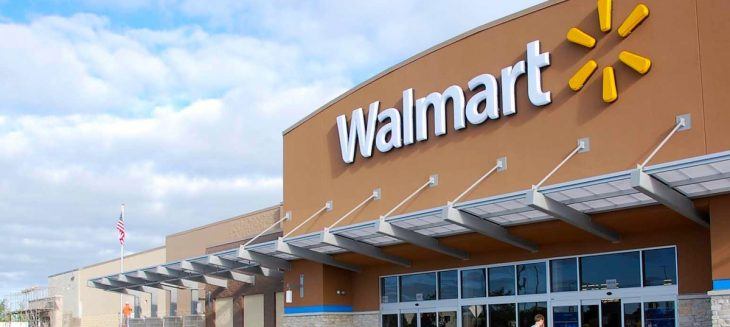Facing competitive pressures, Walmart U.S. commits to lower prices ahead of schedule
by May 19, 2016 5:05 pm 767 views

Everyday low prices are the root mission of Walmart U.S., and it’s one of the lowest cost retailers on the planet. But intense competition from Aldi and other discounters continue to erode the retailer’s price gap the retail giant once held. With Lidl preparing its U.S. store launch in 2018, Walmart is moving up its plans to invest in lower prices nearly a full year ahead of schedule.
“In the quarter we did a better job of managing costs. SG&A discipline improved, as our store teams did a good job of more closely aligning expenses with sales growth,” Wal-Mart CEO Doug McMillon said during the retailer’s first quarter earnings call on Thursday (May 19). (SG&A refers to the sum of all direct and indirect selling expenses and all general and administrative expenses of a company.)
In Walmart U.S. gross margins improved 0.44%. Gross margin benefited from improved shrink and lower transportation costs as well as reduced procurement and operational costs. Total inventory declined 3.5% from a year ago and comp store inventory was down 5.7% while executives report better in-stock levels across the U.S. stores.
“Better expense management in the quarter gave us increased confidence to initiate our next phase of U.S. price investment earlier than planned,” McMillon noted in the release. “Over time, we intend to lower prices further in a deliberate, strategic way to drive our productivity loop. Doing this in a sustainable way takes time and we’re seeing progress.”
Walmart executives said in October that it planned to invest more heavily in lower prices in the coming quarters beginning in fiscal 2018. While no exact amount has been given, in March the retailer reiterated during an investor conference in New York that it will “invest several billion dollars into pricing in the coming years.”
Walmart U.S. CEO Greg Foran said in March that the investment in lower prices would take a backseat to his efforts to improve the overall shopping experience and store operations, a process he began immediately when taking charge of U.S. stores in October 2014. He has also repeatedly said that reducing store shrinkage and excess inventory levels would take priority over more price investments.
Company executives said they were cleaning up their house with several initiatives around improved customer service before they began trying to entice new customers with lower prices. During Thursday’s earnings release McMillon and Foran said they now have the confidence to move forward with the lower price agenda which is accomplished by getting the best price available from suppliers and also conceding margin on Walmart’s side of the equation.
Foran said Thursday the lower price initiative began in the first quarter with a number of rollbacks and prices lowered in several key markets. He said this lower price agenda will be expanded throughout the next few quarters. In October, Foran explained that price investment would also include tweaking quality assortments. He said on items like Tide, it’s about having the lowest price, but when it comes to fresh produce like avocados and red meat, Wal-Mart also must present quality at a value relative to other retailers.
He said Walmart would be thoughtful about how it makes the price changes which will also include unlocked potential in private brands. Foran said the media will get a deeper look at the how Walmart will use private label during its presentations at the upcoming annual shareholder’s week beginning June 1.
“Walmart’s acceleration of this price investment is coming earlier than anyone expected. It’s interesting but really it’s what Walmart has always done, keep prices low so people can live better,” said Budd Bugatch, a retail analyst with Raymond James & Associates.
Bugatch said the Walmart stores he frequents in the Florida market are operating better, with improvements in fresh food sections, more cordial and plentiful employees working in the store and a better overall customer experience with improved in-stocks and less clutter.
Some analysts believe the entrance of Lidl into the mid-atlantic region of the U.S. has Walmart and other grocers scrambling to improve their operations. Lidl is thought to be negotiating deals with food companies to sell mainstream brands at rock-bottom prices in hopes of tempting a similar band of customers away from Aldi’s private labels, said Burt Flickinger III, managing director of the retail consultant Strategic Resource Group in New York.
Kantar Retail analysts said recently that Walmart is aware of Lidl and how this retailer can create price deflation that erodes margins because it’s happening to Walmart ASDA in the United Kingdom.
Walmart executives have played down the Lidl threat in the U.S., saying they know there is room for improvement and they are focused on their own operations.
